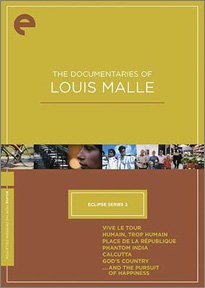Slummi on slummi
However many Oscars India might collect, we should never lend
legitimacy and romance to scars which should make us hang our heads in
shame ...
At the risk of sounding like a party-pooper, may I inject a note of
realism into the wild celebrations accompanying Slumdog Millionaire’s
victory at the Oscars? I yield to no one in my admiration for the
film, its cast, its audacity, its screenplay, its sympathetic
portrayal of the lovely kids of Dharavi. In the early ’70s, the late
Louis Malle made a documentary for the BBC called Phantom India.
The documentary won numerous awards but was banned by the government because it told the truth, i.e. showed how desperately poor and wretched and unequal the country was. Before that and since, the middle class has been extraordinarily sensitive to Indian poverty being showcased to "foreigners" for awards. Recall Satyajit Ray’s Pather Panchali, down to Aravind Adiga’s The White Tiger.
So, what’s changed with Slumdog Millionaire? As far as exploitation of poverty goes, Danny Boyle is up there with Katherine Mayo’s Mother India, which Gandhiji dismissed as a "drain inspector’s report". Why is the English-speaking elite going gaga, heaping extravagant praise?
Beginning with the President to the PM to the leader of the Opposition to the Shiv Sena boss, it seems everyone wants a piece of the Slumdog
pie. Could this unexpected triumph on Sonia Gandhi’s watch boost the
Congress election prospects?
These are weighty questions best set aside. What disturbs me about the
Oscar achievement is the collateral fragrance it spreads around our
mushrooming slums. We are told Dharavi is a slum of vibrancy,
enterprise, the triumph of the human spirit and a model of
inter-communal living. Another collateral boon: superpower India has
at last come to terms with its penury. It is comfortable with its
poverty. If you will pardon my French, that’s bullshit!
Slums, whatever artistic gloss you put on them, are ugly, dark,
squalid, crime-infested locations—a sign of a failed state rather than
a shining one. However many Oscars India might collect, we should
never lend legitimacy and romance to scars which should make us hang
our heads in shame. There is nothing nice about a slum, even a
five-star one like Dharavi, and the Indian state must avoid flirting
with the myth that a slum is a beautiful place, inhabited by beautiful
people doing beautiful things—an example to the rest of the country of
how hard work and honest toil can make the rags-to-riches story
possible.
In fact, Slumdog Millionaire should remind us of what we try to
obscure and sanitise with pretty words. Already, our rulers with
votebanks in mind, have, to an extent succeeded in making us accept
the existence of slums as an inevitable consequence of urbanisation
and globalisation. Slumdog Millionaire could further tranquilise our
sensibilities to the distress and despair right under our nose.
I too celebrate the success of Slumdog Millionaire. Pity about the slums.

